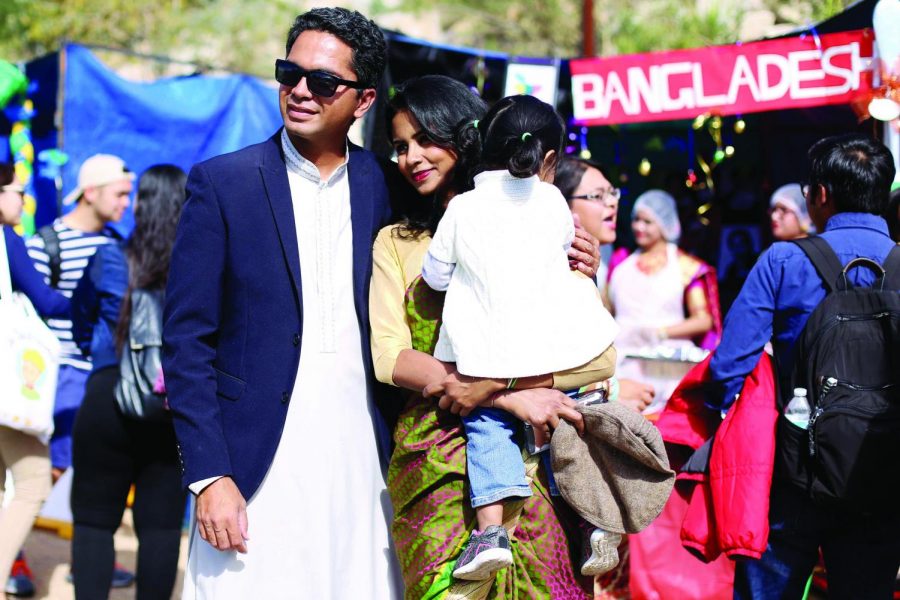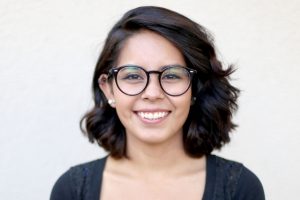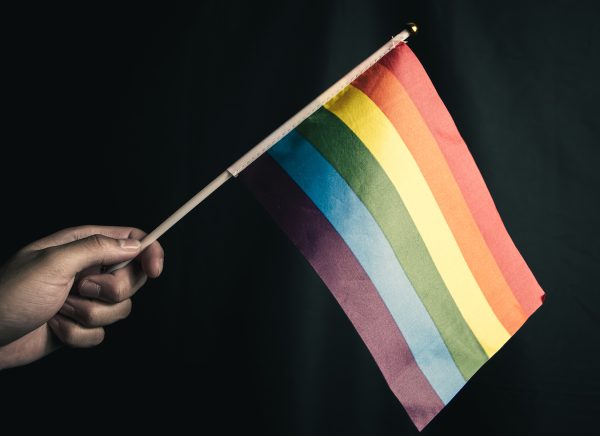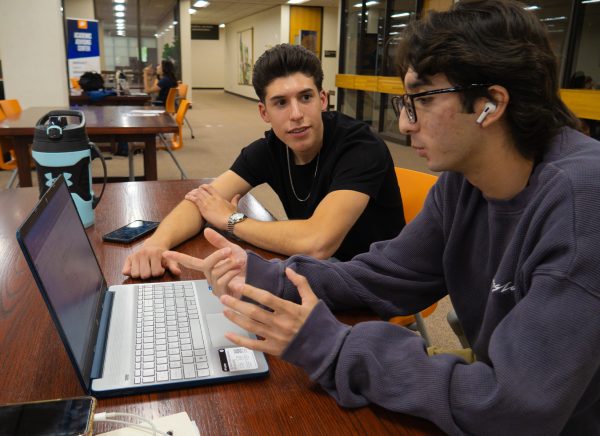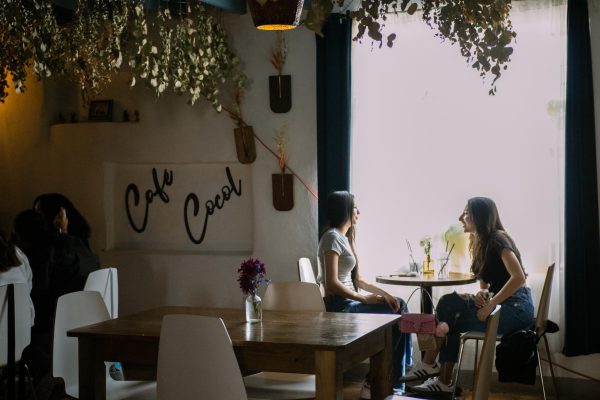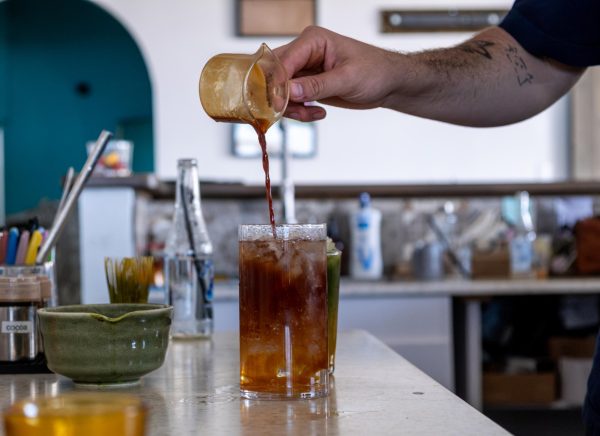UTEP celebrates diversity
The Bangladeshi Student Association placed first in the food fair and won fan favorite as well.
When Mohammed Iddrisu, a graduate student in English rhetoric and writing, got on a plane to the United States for the first time, an overwhelming sense of apprehension overcame him.
He is an African native, born and raised in Ghana, and the fifth of his seven siblings. He’s also a Muslim, who earned his bachelor’s degree of English in Ghana, and served as a teacher in Saudi Arabia for two years.
But he wanted to further his education, thus calling for his new destination, which was America, and more specifically UTEP.
He kept hearing chatter from the U.S. that attacked his race and ethnicity and it frightened him.
However, when he stepped foot in El Paso and got his bearings with the city and university, the cultural inclusivity of the region quickly eased his anxiety.
“Coming to the U.S., one as an African and two as a Muslim, in this political climate and what we saw during the campaign, it was horrible,” he said. “But coming here, the way people receive you—no one sees you as an immigrant, African or Muslim—people just see you as a human being. People want to know more about your culture and want to tell you about their culture.”
Iddrisu joined the African Students Organization (ASO) at UTEP to further promote his culture and learn about others’ different cultures. On Monday, Nov. 13, his organization participated in the 2017 International Food Fair, as part of the university’s International Culture Festival week.
It became more than just a food contest as 16 different organizations from UTEP joined together to not only celebrate their respective cultures through food, but each club joined to commend the different ethnicities, races and cultures through inclusion and information at their respective booths.
Aside from the club’s traditional dishes of African jollof rice and kelewele (fried plantains) entrée, there’s a deeper celebration that they wanted to showcase.
“What makes me proud, first as a Ghanaian and second as an African, is our rich culture,” he said. “Our culture is one that promotes communal living. When we came here, we decided to not create a Ghanaian students (organization), but rather an African students organization so we can create a communal sense of living. This sense of family, this sense of communal living is the thing that’s most key. We have people from Ghana, Nigeria, Kenya, Coco and others from Ghana. So this sense of communal brings us together. We feel we bring all that together.”
Along with the ASO booth, the Bangladeshi Student Association, Le Club Francais, Bhutanese Students’ Association, Black Student Union, Brazilian Culture Center and Nepalese Student Association made cultural-specific dishes and promoted first-hand knowledge of their backgrounds.
Just three feet away from the ASO booth was the Bangladeshi Student Association’s table, decorated with political leaders, artwork and information about Bangladesh. After winning the food fair contest on Monday, they are back-to-back champions. The specific dish they’re known for is their combo dish that includes chicken curry, pulao rice, semai and mago lacchi.
Kazi Md Masum Billah, a member of the Bangladeshi Student Association and a doctoral student in mechanical engineering, said that their mission for the university’s international week goes beyond just a plate of food.
According to UTEP’s breakdown of international students, there are 55 students enrolled from Bangladesh.
“It’s not all about the food, it’s about the culture. You can see a lot of great people behind this and we are mostly graduate students doing master’s or doctor’s programs,” Billah said. “I would say more than 90 percent of people from Bangladesh are Muslim and the other 10 percent are Hindu, Buddhist and others.”
Back home, Billah speaks Bengali and now speaks fluent English. He decided to come to UTEP because of its engineering program.
“The biggest difference is the humidity and the snowfall,” he said. “The weather is really cool in El Paso, we all really like it.”
Similar to Iddrisu, Billah appreciates the ethnic diversity approach UTEP offers.
“We heard that El Paso is the immigrant-friendly city. Being here we can see the other international students are really nice, and also the people from El Paso have been really nice,” he said.
Unlike the others, Sonam Lhamo, the president of the Bhutanese Students’ Association and a senior physics major, did not directly choose to come to UTEP to study. Instead, her scholarship placed her at the university and she has enjoyed her time thus far.
“It feels really homey because I saw how UTEP set everything up based off the Bhutanese culture and they did a really good job on the architecture,” said Lhamo, who is one of 30 Bhutanese students at UTEP. “Not many people know that about the architecture. Our mission and our vision is to let people know about the Bhutanese culture and to spread the love.”
The only thing is that while all of these different organizations agree that the region promotes cultural diversity, on a national scale, the country sometimes reflects otherwise.
There are more than a million international students that attend American colleges and universities, and more than 160,000 of them are from India, second only to China with more than 300,000, according to the New York Times.
Data taken from The Center for Institutional Evaluation, Research and Planning (CIERP) at UTEP. Christian Vasquez
Recently, Inside Higher Ed did a survey among international students in America and found that there has been a downward trend in enrollments through universities. The survey also indicated that half of the universities saw a 45 percent drop with international enrollment.
“In my opinion, America really resists change,” Lhamo said. “I don’t think learning new cultures will help get rid of the old ones. It helps you meet new people, be diverse. Now, what is America? It’s a fusion of different cultures. Even back home we try to resist change and limit the cultures learned. But I think we should take the good part of each culture that we encounter.”
Carlos De Lara, a member of the Brazilian Culture Center and a junior history major, was born and raised in El Paso but decided to join the organization based on his strong beliefs for cultural diversity. He joined the organization after taking a Portuguese class and also volunteered to help them at the food fair.
He believes that the region’s tolerance to different backgrounds and races should be an example on a national scale of how the rest of the nation should be.
“We have a bunch of different people from all around the world here. El Paso is extremely accepting. I happen to work as an Uber (driver) sometimes and people across the country—across the world—they feel neglected and they come here and they feel a little more heartwarming,” he said. “Me, as a native of El Paso, makes me proud to be here.”
These organizations and others will continue the celebration of the International Culture Festival throughout this week, with events ranging from a bazaar and entertainment to a lecture and film series.
For more information on locations, times and the full event schedule, visit sa.utep.edu/ICF.
Follow Adrian Broaddus on Twitter @adrian_broaddus
Adrian was born and raised in El Paso, TX, and is a graduate of Franklin high school. He entered college in the fall of 2015 in hopes to better his career in journalism.
Along with sports, Adrian enjoys writing music reviews, perspective columns and news stories on politics.
Although he is pursuing his degree in journalism, Adrian would like to go to law school and be an attorney while doing part-time work in journalism.

